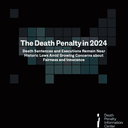
The Nebraska Supreme Court has agreed to consider whether the state’s use of the electric chair is cruel and unusual punishment. The case, brought by death row inmate Carey Dean Moore, will be heard on May 5. Every other death penalty state has adopted lethal injection as an alternative method of execution. A bill to offer lethal injection in Nebraska remains stalled in the state’s Senate Judiciary Committee.
Three people have been put to death in Nebraska since executions resumed in 1994. Coroner reports document that one of the men, John Joubert, suffered a 4‑inch brain blister on the top of his head and blistering on both sides of his head above his ears. The reports note that another man, Robert Williams, had a “bubble blister” the size of a baseball on his left calf and had pronounced “charring” on both sides of a knee and the top of his head. A witness to Williams’ execution reported seeing smoke coming from his head.
Moore’s attorney, Alan Peterson, notes, “Now, no other state mandates that humans face the horror of death by internal burning and shock, with the well-known history of bungled, smoking failures of the century-old technique. [Electrocution] involves more than mere extinguishment of life and will subject defendant to needless agony, physical suffering, torture, mutilation, disfigurement, and degradation.… No longer can this state tolerate the form of punishment now almost universally recognized to be beyond the bounds of minimum human dignity, civility, and decency.” (Associated Press, April 19, 2005).
Georgia’s Supreme Court ruled that the electric chair violated the state’s constitutional prohibition of cruel and unusual punishment in 2001. A few states allow inmates to choose the electric chair rather than lethal injection as their method of execution. See Methods of Execution.



